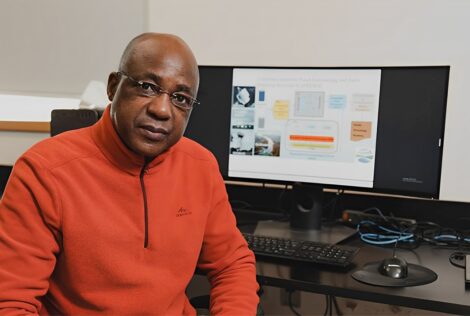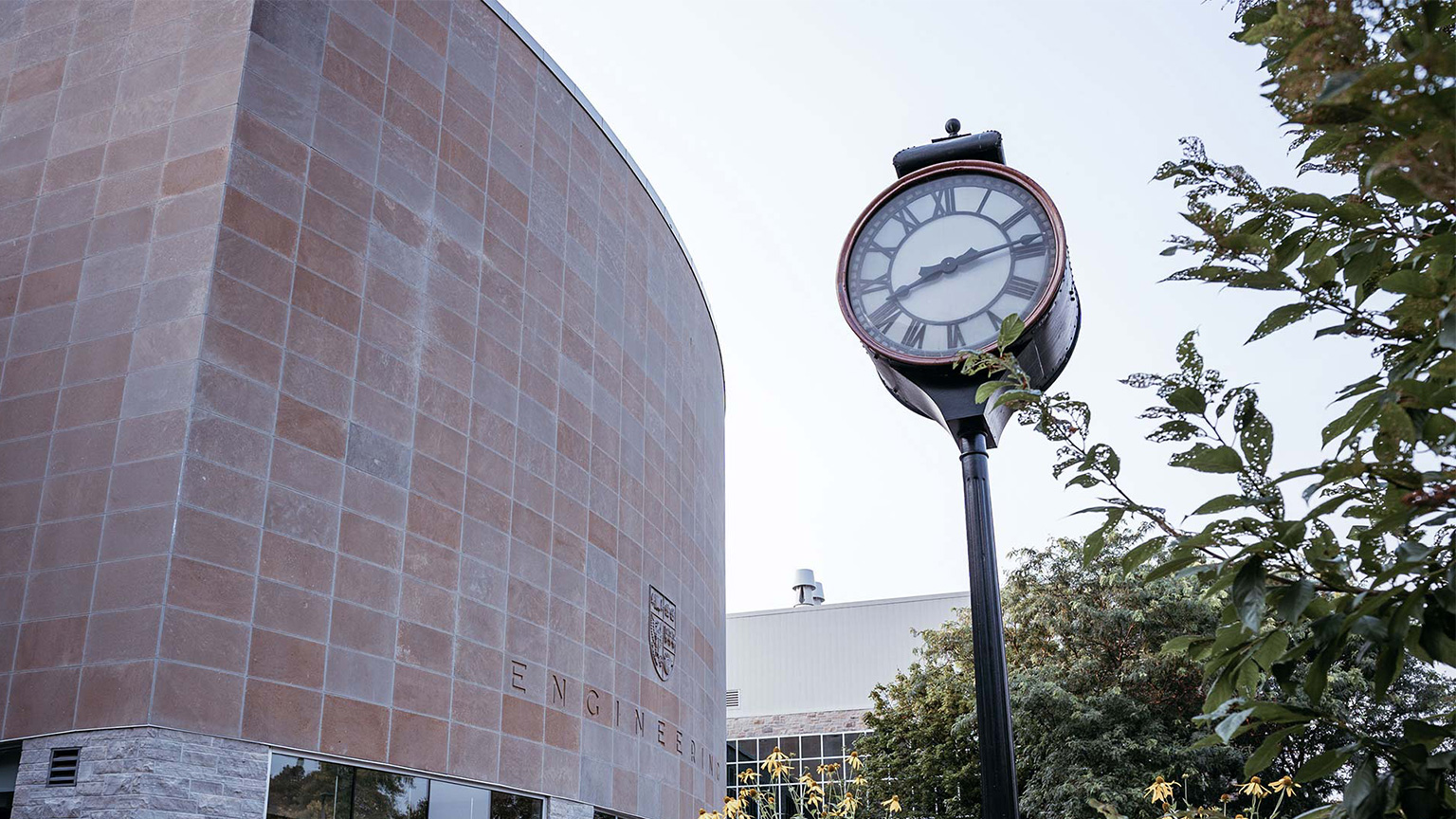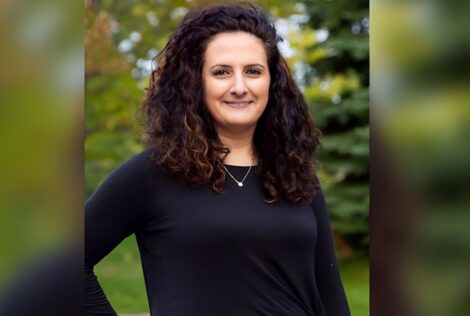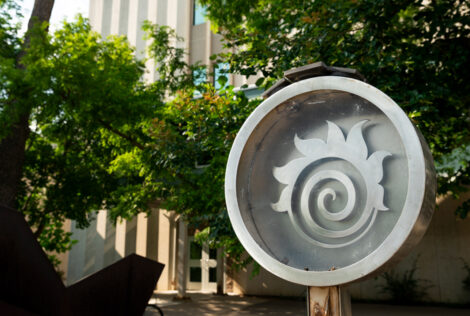

One of the first things you notice about Ishwar K. Puri is his laugh. It’s big, boisterous and infectious. It fills a room, makes you smile and surprises you.
So does Puri’s vast knowledge of art, movies, food and philosophy. He’ll quickly school you on Socrates and recite quotes from old western flicks and Netflix shows.
He spent his teenage years as a typesetter, leading to a love of words and keen eye for copyediting. He toyed with the idea of dedicating his career to philosophy, with a want to spend his time thinking deeply about life and art.
And he can’t stand stereotypes of any sort, albeit in art, race, gender, music, and his profession: Engineering. Using a gear as an icon for engineering? Big no-no.
Puri prides himself on defying what it means to be an engineer. For the past five years, as Dean of Engineering at McMaster University, he’s encouraged others to think differently about engineering education, research and innovation.
Arts and engineering should go together. People from diverse backgrounds need to be involved in the engineering profession in order to generate better solutions to challenges facing society. A start-up feel should be embedded in research, the classroom and the boardroom.
Puri has a clear vision of breaking the boundaries of engineering, and wants to move swiftly toward creating cultural change.
We don’t only create engineers for the engineering profession. More than half of our graduates wind up doing things other than engineering, and we make a conscious effort to support them in those endeavours because my belief is that engineering is the new liberal arts degree of the 21st century.
Too often, engineering schools focus on technical skills and forget that students and faculty are humans that need to be key community members, Puri says.
“We can miss that these engineers have to go out into society. We can miss that these engineers must be parents, partners, spouses, citizens, sons, daughters, aunts, uncles, and neighbours. At McMaster Engineering, we try to not only create top-notch engineers, but, whether they become future engineers or not, we also give students perspectives on how to make an impact on the world.”
These ideals have guided Puri since he first walked through the doors of McMaster’s John Hodgins Engineering building in 2013, after arriving from Virginia Tech — the first dean to be hired from outside the institution since the Faculty’s founding dean.
Since then, Puri has brought a steady pace of change — working closely with faculty and staff — to introduce a range of new projects and procedures that have increased the number of women faculty, improved hiring procedures, professionalized graduate programs, improved community spaces, introduced supplementary applications, helped retain students, created more hands-on classroom curriculum, new programs and boosted experiences for students outside the classroom.
At the heart of his decision making, Puri says, is evidence.
“Engineers are receptive to good ideas when these are presented to them with adequate data. Whatever challenges there are can be overcome by making a case, which is evidence-based. What we’ve done collectively as a Faculty over the last five years is to build our aspirations based on evidence.”
This past winter, Puri’s term as dean was renewed for another five years, allowing him to carry on his vision of thinking big about engineering at McMaster.
He says he hopes to continue to work closely with colleagues to increase research funding, introduce a widespread integrated, project-based approach to engineering curriculum, foster Hamilton’s innovation and entrepreneurship ecosystem, and create rich out-of-class experiences for students to tackle global grand challenges.
At the heart of everything lies the student experience, Puri says.
“I’ve travelled the world and visited other institutions. I’ve worked at other institutions. Hence, I would say that one of the greatest strengths of McMaster Engineering is putting students in the middle of the learning process when making decisions. It’s amazing to observe how students are partners in so many things that we do. They are our future alumni and agents of our future reputation.”


